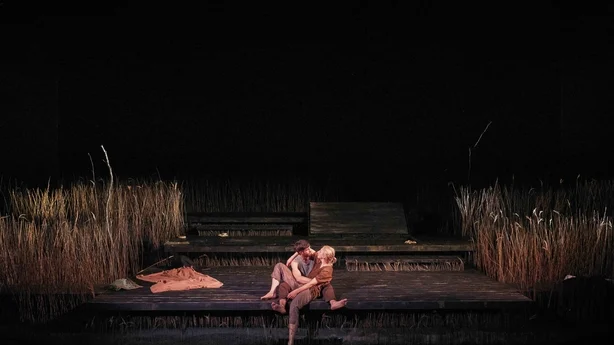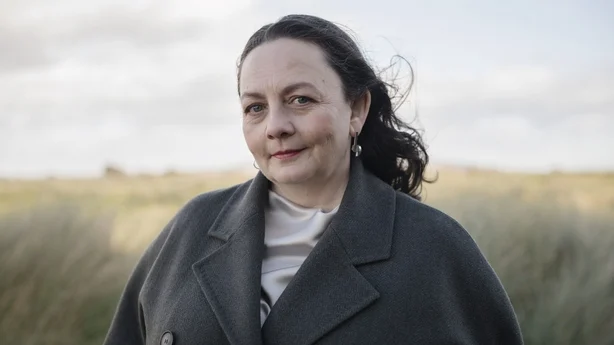Dec 24, 2024
Oct 09,2024
Diarmuid and Gráinne is one of the great love stories in Irish mythology – she the beautiful daughter of the High King of Ireland, he the famous young warrior of the Fianna – but Gráinne is betrothed to Fionn Mac Cumhaill, and when the young lovers run away together on the eve of that wedding, all three indviduals will pay a heavy price...
Lady Gregory's classic play Grania has just opened at the Abbey Theatre, directed by its Artistic Director Caitriona McLaughlin, who introduces the production below.
At the end of Grania an arresting stage direction, one easily overlooked, reads: 'There is another great peal of laughter, but it stops suddenly as she goes out.'
Throughout the play, Gregory uses offstage laughter to draw our attention to key moments within the story. It is as if the outside world is mocking Grania, something beyond herself - in this case the men of the Fianna- is laughing at her, they (or perhaps we the audience) know more of the world than she does.

However, the very last thing that happens in the play is this sudden cessation of mocking derision. Technically, it is a coup de théâtre that illustrates Gregory's total command of the form: the laughter that chokes on the threshold of revelation. That arrested sound tells us, resolutely, that Grania has taken control and has crowned herself, and in the darkness that follows she steps into her future. It is an instant when the mythic is transcended and finds resonance in our own present tense: that sudden halt when a woman is suddenly heard and seen and respected on her own terms.
Programming Grania by Lady Gregory feels like an important moment in time. I have mixed feelings about the fact it’s never been produced at the Abbey until now. It is both patently absurd and an immense privilege to correct that misstep. The play is a poetic and beautifully distilled examination of relationships between men and women.
It is alarmingly frank about the sexual dynamic that plays out inside a love triangle, where a woman is side-lined by the passion between men. In this it pre-empts Pinter’s similarly themed Betrayal by nearly seventy years.
What is unnervingly contemporary is how she calibrates the deepest human emotions of love, desire, jealousy, and shame with such clear-eyed precision and propulsive action. Working on the play we all found the deep humanity of the characters, the exquisite language, and the strength of feeling it evokes rich and strange.
Augusta Gregory’s sonnets (printed as A Woman’s Sonnets by her lover, Wilfred Blunt), directly access this depth of feeling, and we have incorporated several of them into the production, accompanied by music composed by Carl Kennedy.

This is the story set in the time of Finn and the Fianna, but the creative team and I felt that attempting a faithful recreation of the 2nd or 3rd century would dampen the fire and immediacy of Lady Gregory’s vision. She wanted to connect directly and viscerally with her audience, and our staging strives to honour the spirit of that impulse. In this decision I was inspired by Cathy Leeney’s paper The New Woman in a New Ireland?: Grania After Naturalism, and the parallels she draws between Gregory’s vision of Grania as representative of a new Ireland, that steps out from the constraints of its mythic past into an unknowable future, and the chilling door slam of Ibsen’s, Nora Helmer, another sound that continues to reverberate down the decades across Europe.
Those two sounds, the arrested laughter and the door slam, go beyond speech but speak volumes. They are sounds of resistance and renewal, of wilful, sexually awakened, powerful women taking control of their destinies.